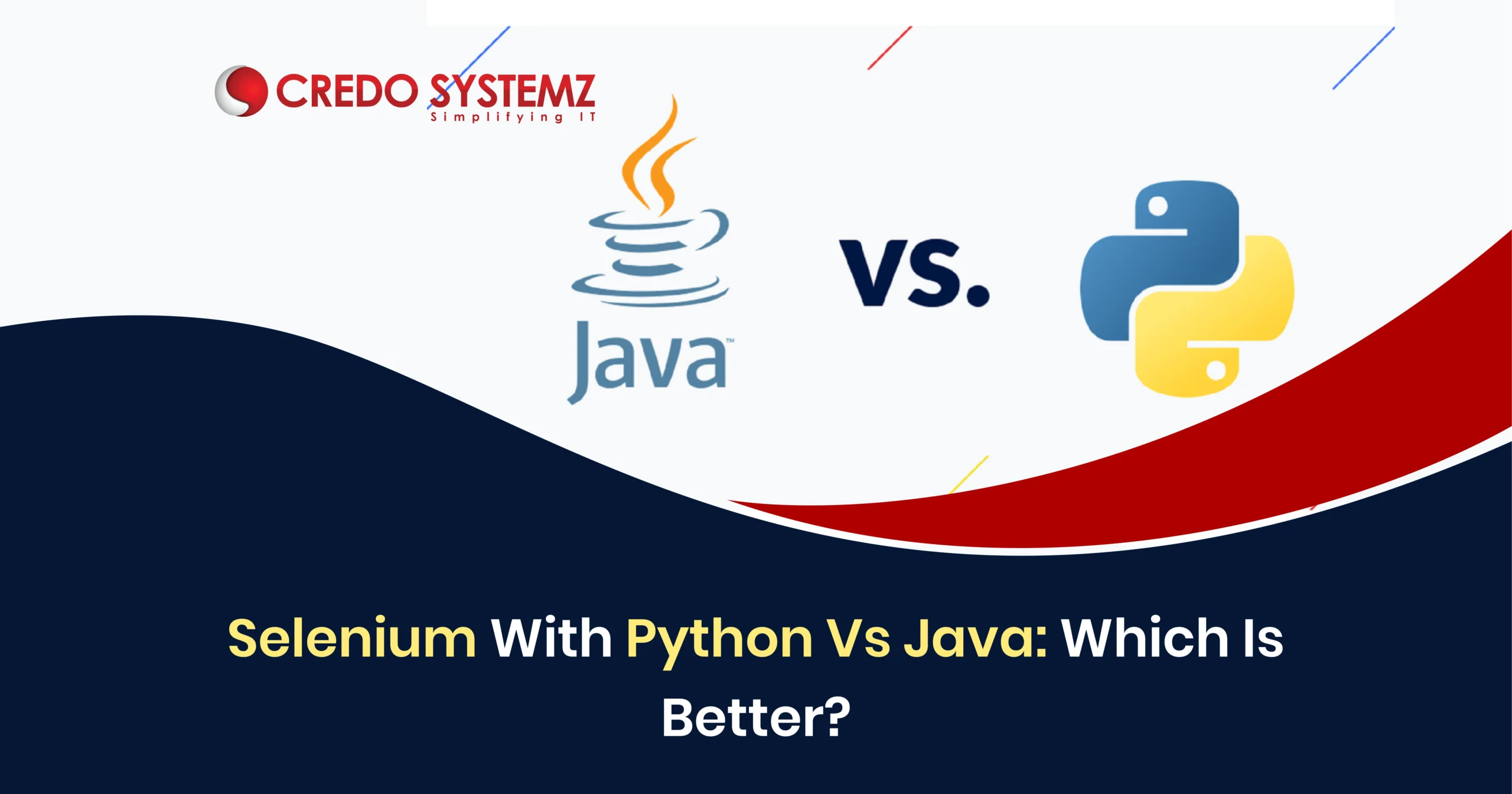
Introduction
In the automation testing field, Selenium is one of the most popular frameworks for web applications. It allows testers to automate browsers efficiently by supporting multiple programming languages like Java, Python, C#, Ruby, and JavaScript. Among these, < ahref="https://www.credosystemz.com/training-in-chennai/best-python-training-in-chennai/">Python and Java are the most widely used.
Overview of Selenium with Java
Java is the go-to language for Selenium automation with its:
- Robust OOP (Object-Oriented Programming) structure,
- Strong typing,
- Extensive community support.
Java offers a solid foundation for building large-scale, maintainable automation frameworks.
Key advantages of selenium with java
- Stability and scalability: Ideal for enterprise-level test automation.
- Rich ecosystem: Works with tools like TestNG, Maven, Jenkins, and Cucumber.
- Extensive documentation: Easy to find tutorials, libraries, and community help.
- Parallel execution: TestNG and Selenium Grid make parallel testing smoother.
Drawbacks of selenium with java
- With verbose syntax, writing and maintaining code takes more time.
- Slower initial setup when compared to Python.
Overview of Selenium with Python
Python has emerged as a favorite among testers for its simplicity and readability. Selenium with Python is fast to set up and easy to learn with minimal coding experience.
Key advantages of selenium with python
- Simple syntax: Test scripts are cleaner, and easier to debug.
- Rapid development: Quicker to build and maintain automation scripts.
- Integration-friendly: Works well with PyTest, Behave (for BDD), and CI/CD tools.
- Growing popularity in AI/ML: Perfect for combining testing with data analytics or machine learning.
Drawbacks of selenium with python
- Slower execution speed compared to Java in large test suites.
- Smaller community support in Selenium compared to Java.
Key Differences: Selenium with Python vs Java
| Feature | Selenium with Java | Selenium with Python |
|---|---|---|
| Ease of Learning | Steeper learning curve | Beginner-friendly |
| Code Readability | Verbose and structured | Clean and concise |
| Execution Speed | Slightly faster | Slower for large test suites |
| Setup Time | Requires more configuration | Very quick setup |
| Community Support | Very large and mature | Rapidly growing |
| Integration Tools | TestNG, Maven, Jenkins | PyTest, Behave, Allure |
| Best For | Enterprise-scale automation | Quick scripting and test prototyping |
When to Choose Java for Selenium
Choose Java for selenium if you work in large enterprise projects where code scalability and structure matter.
It is suitable for using TestNG or Jenkins for complex test management and CI/CD integration. With familiarity in Java development and working experience in a Java-based tech stack, Java is the right choice.
When to Choose Python for Selenium
If you are a beginner in automation testing or programming, Choose Python which allows you to write and maintain tests quickly with minimal syntax.
If you are planning to integrate AI/ML or data analytics with your test automation and working in agile environments, Python is highly recommended with its library support.
Real-World Use Case Example
Enterprise companies like Amazon and IBM use Java for their Selenium frameworks because it integrates seamlessly with large-scale CI/CD systems.
Startups and QA teams working on lightweight or data-driven projects because of its quick development cycle and flexibility.
Verdict: Which is Better?
There’s no universal winner and the choice depends on your project requirements and skill level. If you value speed, simplicity, and flexibility, go with Selenium with Python.
If you need scalability, structure, and enterprise-grade reliability, choose Selenium with Java. Python is better for beginners and rapid testing, while Java is better for enterprise and large-scale automation.

Join Credo Systemz Software Courses in Chennai at Credo Systemz OMR, Credo Systemz Velachery to kick-start or uplift your career path.
FAQ
No, you can’t mix them in the same project. You must choose one language per Selenium framework.
Java generally executes slightly faster due to JVM optimizations, but the difference is minor for most test cases.
Python is easier as it has simple syntax and requires fewer lines of code.
Java has broader enterprise-level opportunities, but Python is growing rapidly in the automation and AI testing domains.
